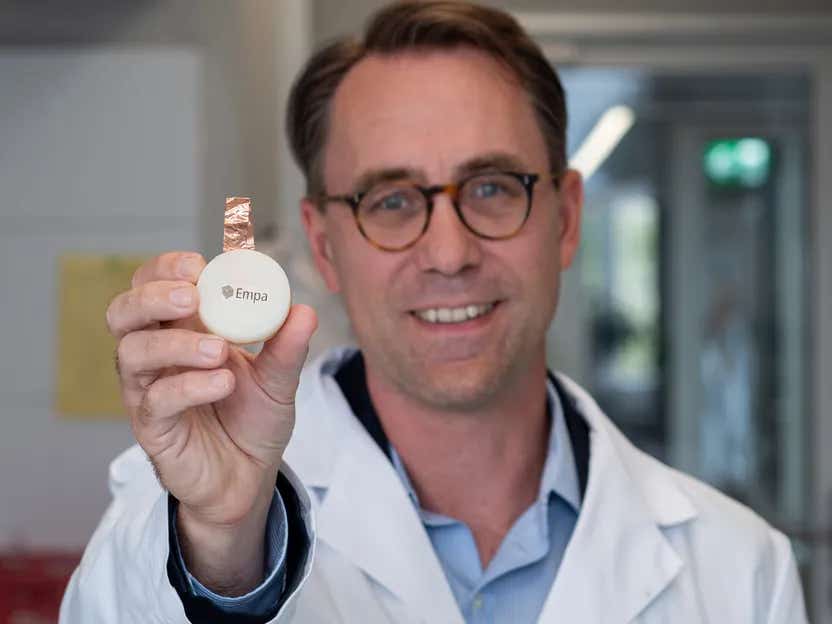Common prostate health drugs may help prevent Dementia
A recent study suggests that common drugs for treating an enlarged prostate might also reduce the risk of dementia with Lewy bodies

A recent study suggests that common drugs for treating an enlarged prostate might also reduce the risk of dementia with Lewy bodies (DLB). This discovery aligns with earlier research by the University of Iowa (UI) Health Care team, which found these drugs to be beneficial in Parkinson's disease.
The UI researchers believe these drugs might target a shared biological flaw present in DLB, Parkinson’s, and other neurodegenerative diseases. This raises the possibility of their broader use in treating various neurodegenerative conditions.
“Diseases like dementia with Lewy bodies, Parkinson's, and Alzheimer's are devastating, and we lack effective treatments to slow their progression. We can only manage symptoms,” explains Dr. Jacob Simmering, lead author and UI assistant professor of internal medicine. “What’s exciting about this study is the potential neuroprotective effect we observed. If these medications offer a broad protective mechanism, they could be used to manage or prevent other neurodegenerative diseases.”
The findings were published in Neurology®, the journal of the American Academy of Neurology.
DLB is a neurodegenerative disease that leads to rapid cognitive decline and dementia. Though less common than Parkinson’s, DLB affects about 1 in 1,000 people annually and accounts for 3-7% of all dementia cases. With aging being a significant risk factor, DLB is likely to become more prevalent as the population ages.
In their study, UI researchers analyzed data from over 643,000 men without a history of DLB who had started one of six drugs for benign prostatic hyperplasia (BPH). Three of these drugs—terazosin, doxazosin, and alfuzosin (Tz/Dz/Az)—boost energy production in brain cells, which may help prevent neurodegenerative diseases like DLB and Parkinson's.
Related Stories
The other drugs, tamsulosin and two 5-alpha-reductase inhibitors (5ARIs) called finasteride and dutasteride, do not enhance brain energy production, providing a good comparison.
The researchers tracked the men from when they started the medication until they either left the database or developed DLB, with an average follow-up of three years. The participants were matched for characteristics like age, year of medication start, and other preexisting conditions to minimize differences between the groups.
“We found that men who took Tz/Dz/Az drugs were less likely to develop DLB,” Simmering says. “Men on terazosin-type medications had about a 40% lower risk of DLB compared to those on tamsulosin, and about a 37% lower risk compared to those on 5ARIs.”
No significant difference in DLB risk was observed between men taking tamsulosin and those on 5ARIs.
While this observational study shows an association rather than a causal relationship between Tz/Dz/Az drugs and reduced DLB risk, the results are promising. The study only included men since the drugs are prescribed for prostate issues, so it is unknown if the findings apply to women. However, Simmering and his team are hopeful about the potential of these FDA-approved, inexpensive, and safe drugs.
“If terazosin and similar medications can slow or prevent DLB, this would significantly preserve cognitive function and quality of life for those affected,” Simmering says.
The research team included UI neuroscientists Dr. Nandakumar Narayanan, Dr. Georgina Aldridge, Dr. Qiang Zhang, and Dr. Alexander Hart, now at the University of Michigan.
Note: Materials provided above by The Brighter Side of News. Content may be edited for style and length.
Like these kind of feel good stories? Get the Brighter Side of News' newsletter.
Joshua Shavit
Science & Technology Writer | AI and Robotics Reporter
Joshua Shavit is a Los Angeles-based science and technology writer with a passion for exploring the breakthroughs shaping the future. As a contributor to The Brighter Side of News, he focuses on positive and transformative advancements in AI, technology, physics, engineering, robotics and space science. Joshua is currently working towards a Bachelor of Science in Business Administration at the University of California, Berkeley. He combines his academic background with a talent for storytelling, making complex scientific discoveries engaging and accessible. His work highlights the innovators behind the ideas, bringing readers closer to the people driving progress.



